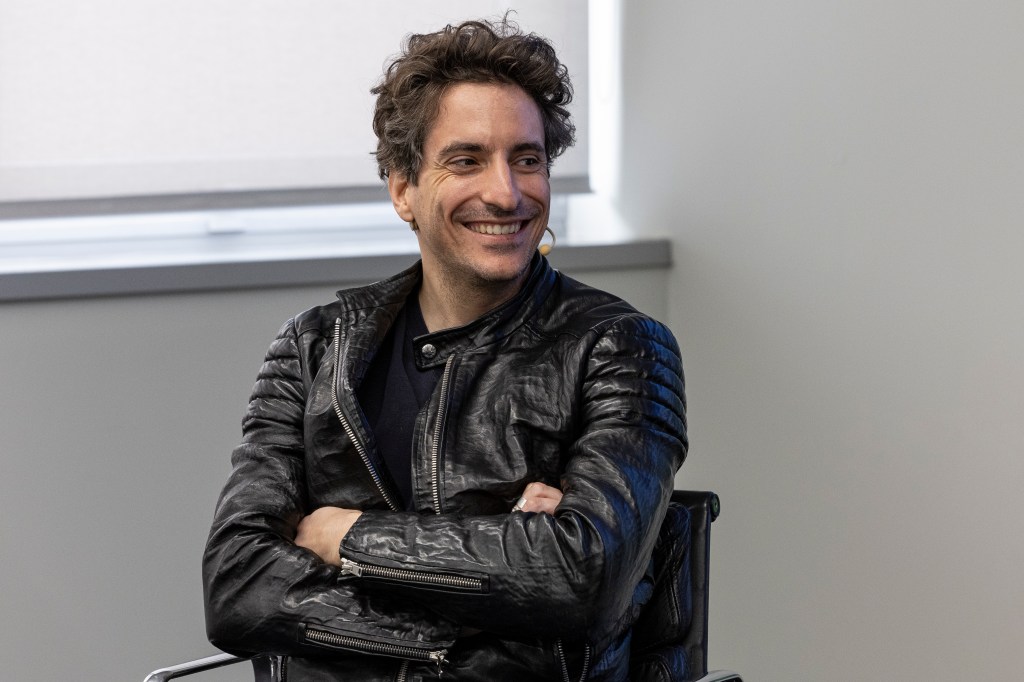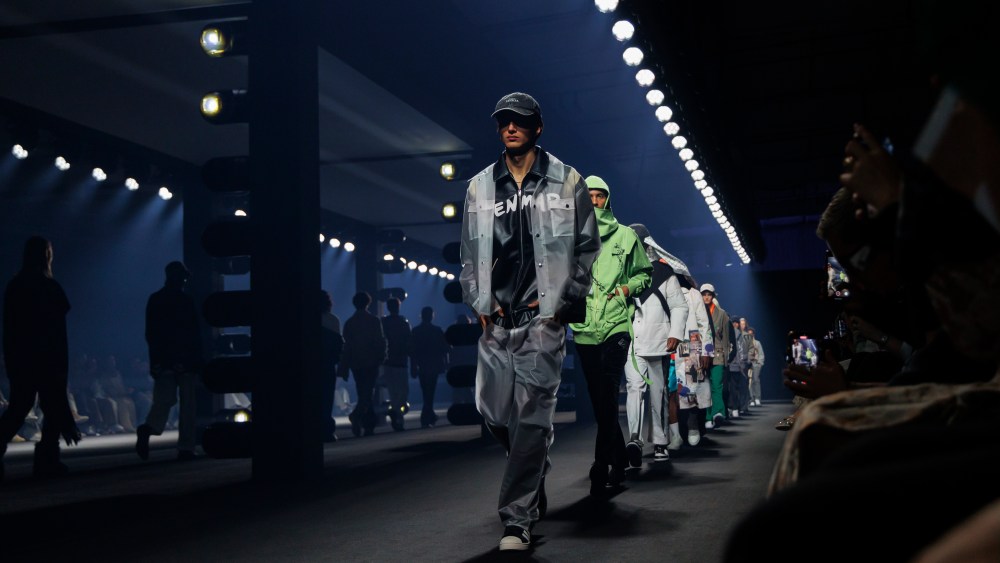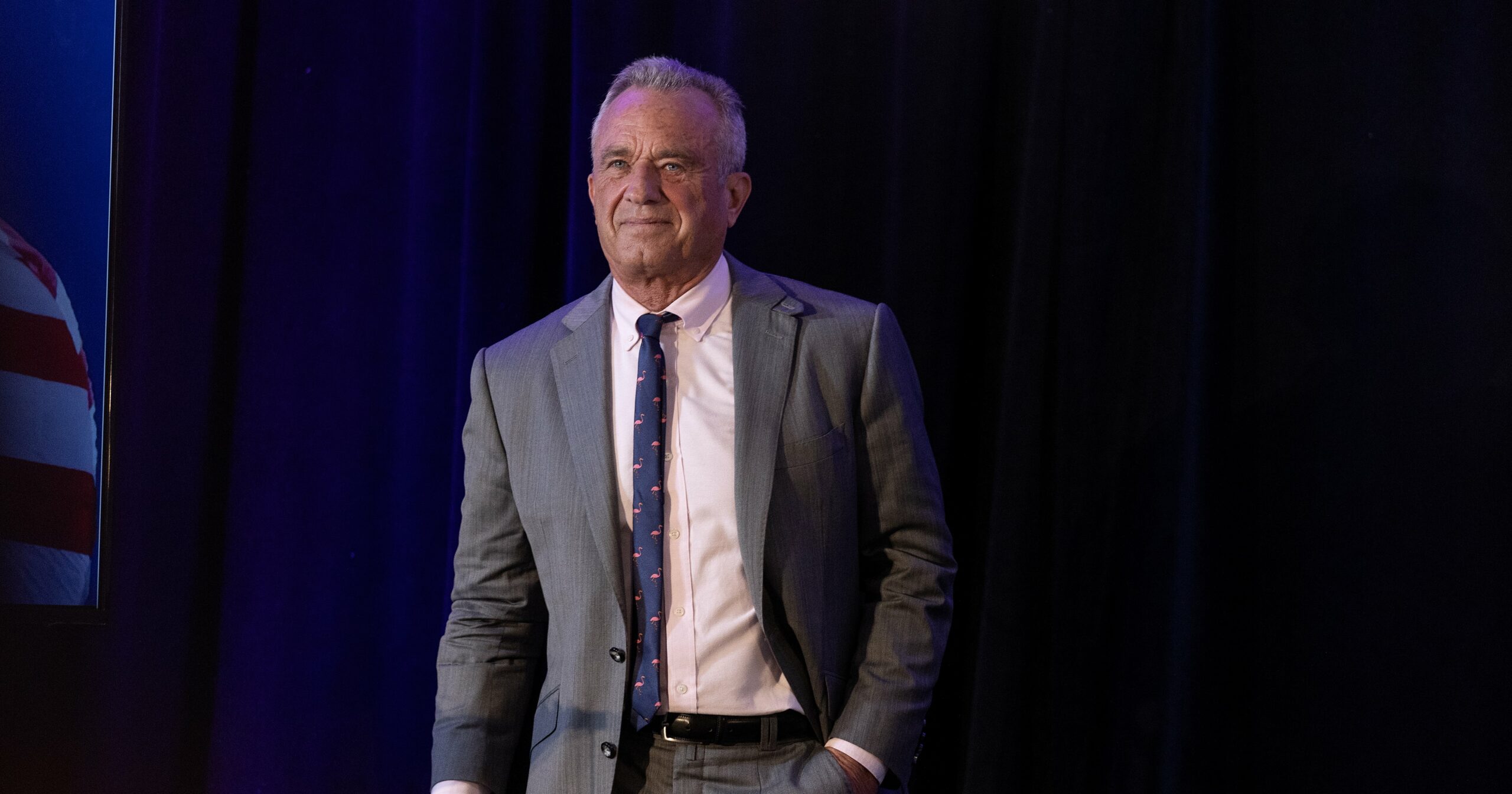TORGIANO, Italy – On Tuesday morning, as news spread that Compagnie Financière Richemont acquired Italian jeweler Vhernier, the Prada Group’s top brass was all about supporting Made in Italy production.
What began as a talk ahead of the first tour of the group’s Torgiano knitwear industrial structure turned into a conversation about some of the most important issues in the industry and in Italy at the moment, starting from protecting the supply chain to the generational handover and M&A.
Lorenzo Bertelli, marketing director and head of CSR, said that the group “has been and will always be open to considering opportunities.” He is the son of Prada founders Miuccia Prada and Patrizio Bertelli, and shied away from commenting on a question about a potential future target: the Giorgio Armani company, the future of which has been the target of speculation. “We are not aware of his own private thoughts,” he said referring to the designer.
Group chief executive officer Andrea Guerra said he didn’t think Armani was ready to sell his company, following recent Armani’s comments to Bloomberg, and said he believed they were “more considerations on his life” and that the Prada group’s potential interest in that company was “not on the agenda.” The group’s acquisitions are made “not per se, but to add value,” he also pointed out. Recent acquisitions include cashmere company Filati Biagioli Modesto and luxury knitwear company Luigi Fedeli e Figlio, both together with the Zegna Group.

Guerra, who joined the group in January last year, praised the long-term views of the founders when it comes to succession. “They started the handover five or six years ago and the financial and cultural growth speak of the group’s evolution. Is it an easy path? No, especially when two of the founders are still here, but being farsighted and intelligent [as they are] is key, this is a long journey. The group has very deep roots in culture. If you speak to the founders, it’s not only all about the financials but to be able to be a part of the cultural scenario and to progress in the world of luxury.”
The event was held at the Torgiana knitwear plant on the outskirts of Perugia, in the Umbria region, which works for both the Prada and Miu Miu brands. It was opened up for the first time after the group doubled its size to 9,000 square meters with the addition of a park spanning over 15,000 square meters. The plant was first acquired in 2000, when it had 39 employees. The size doubled in 2017, and then again at the end of last year.
Without providing a specific breakdown, Guerra said knitwear is one of the most important categories for the group. As women were seen knitting and crocheting near some of the technologically advanced machines, it was pointed out that there is an increasing interest in handmade knits. The Torgiano plant produces 30,000 pieces per month.
Torgiano counts 214 employees (72 percent are women), and “is a symbol of the group’s investments made in the past 40 to 50 years in Italy,” said Guerra. The group has 26 industrial sites (23 are in Italy) with 14,876 group employees, of whom 3,522 are in the industrial division.
Guerra said the group earmarks investments of around 70 to 80 million euros per year in the industrial world, excluding acquisitions, and it is currently building a new leather goods plant in Piancastagnaio, near Siena, and a ready-to-wear site in Senigallia, in central Italy.

Between 2019 and 2022 the group invested 210 million euros in its industrial structure.
“My father was among the first to believe in the verticalization of production, in the territory and in the direct management of the plants,” said Lorenzo Bertelli. He brought good news, saying that “there are increasingly more young people interested in this sector,” at a time when finding artisans in the industry is a concern for many. The group employs 352 people in the Umbria region, which is a knitwear manufacturing hub. Brunello Cucinelli, Fabiana Filippi and Lorena Antoniazzi are just some of the neighboring brands.
Although Italy has not succeeded in building luxury fashion conglomerates, Bertelli, however, admitted that foreign investments in the country have also helped protect and develop some brands. Other countries, on the other hand, have lost the production prowess Italy can boast, Guerra added.
The plant has an internal school, or Prada Academy as it is called, and the generational handover was once again a key topic as Bertelli underscored that it is important for the expert and senior artisans to work alongside the younger generations to perfect the training, which can last four to five years. “Creating a dialogue between generations and communicating our know-how are fundamental issues,” he said. “We must protect the image of Made in Italy.”

Guerra agreed, saying that between 70 and 80 percent of luxury global production is made in Italy. “We are not missing the savoir faire but we should improve the storytelling, we are lacking in communication. Marketing has been channeled more onto the brands, less on the story behind the know-how,” he said speaking in general terms.
“If you go to an American or French entrepreneur, he will take you to a store, in Italy 90 percent of them will take you to a manufacturing plant. I am not anxious to restore value to Made in Italy; it’s there and it’s strong,” Guerra added.
Again, Armani was brought up, following a recent criminal probe into a subcontracting production of an Armani Group-owned firm. “Accidents can happen, but we have to create the conditions for them not to happen,” said Bertelli. “Our control is direct.”
“An investigation is not a sentence,” cautioned Guerra.



